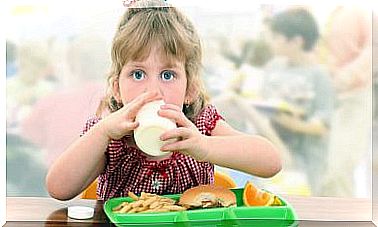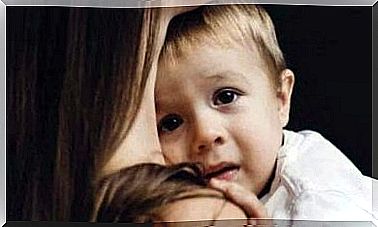Overprotected Children: The Danger Of Narcissism
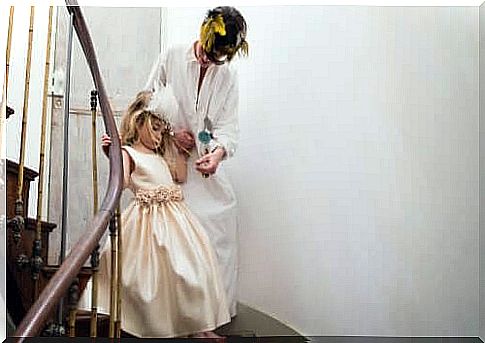
Any parent would like others to value their children. He would like the world to be able to see what he sees: how smart, special and good they are. There is no bigger fan of a child than a child’s own parents. And this, very often, is a serious mistake. We do not realize that by doing so we are raising overprotected and often narcissistic children.
The happiness of the children is one of the priorities of the parents. We fear that our son may suffer, that he will be traumatized and that this means for him to carry on problems as an adult.
Children are our greatest source of joy and for this we want to give them everything and all the opportunities that we have not had. The problem is that if we don’t let them make any effort and it is worse in the long run than any childhood trauma.
Overprotection is toxic behavior that affects parents. It makes the child think he is superior to others and believe he deserves everything he wants, without even lifting a finger. In addition, it prevents him from maturing and knowing how to deal with the small daily obstacles, which will affect his life as an adult.
If you raise overprotected children they will become narcissistic, rude and fragile children. They can speak 3 languages at the age of 7, but they don’t know how to tie their shoes or set the table. They have exaggeratedly large egos and are convinced that everything is their due. To combat the problem, you need to know this behavior very well and understand what causes it.
What is narcissism?
It is a personality disorder. The main characteristics of narcissism can be summarized in one: in the exaggerated admiration towards oneself. They overestimate their abilities, lack empathy, and need to get the attention of others to feel good. Their behavior often arouses the antipathy of others, preventing them from having healthy friendships.
They also exhibit a number of frequent behaviors, which are usually associated with bad upbringing, when in reality the parents have done everything to achieve the opposite:
- They can be understood by people of their own “rank” or by whom they consider superior.
- They believe they have a right to everything.
- In social relationships, they treat others badly. They are selfish and take advantage of the people around them.
- They are devoid of empathy, as mentioned above.
- Also, they are very overbearing.
- They believe that others are envious of them.
- They have very low self-esteem, which is why they need to feel admired all the time.
How to avoid raising overprotected children
Although what has just been said is specific to a pathology, it is particularly common to find traits of this pathology in many overprotected children. It is our job to educate them adequately so that this process does not go on. Once accepted, the next question is to ask: what can we do about it?
Don’t give in to all their whims
It must be made clear that you will not give in to all its claims. If they really want something, they have to know how to earn it. They must know that everything they own comes from a sacrifice: those made by their parents.
Once out of the home, they won’t always get what they want, and it’s best they get used to it. Otherwise, they could turn into really toxic people.
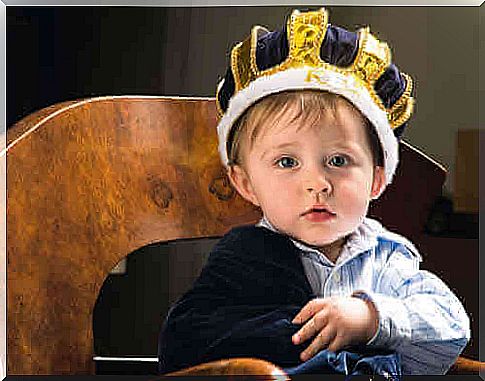
Teach your child to respect others
Obviously it is very important that the child feels loved, but it is equally important that he does not consider himself superior. We need to teach him that although he is truly special, there are many other people as special as he is.
And he will have to respect them and love them all. A positive stimulus in this direction could be allowing him to go and play at other children’s homes and send other children home. In this way he will get used to sharing and relating to families other than his own.
Any action has consequences
If he misbehaves he will be punished. If he performs really well, he will receive a small reward. This serves as a stimulus for him to change his attitude and be aware that he is not untouchable.
You shouldn’t overstate his mistakes or humiliate him for them, but you shouldn’t let him get away with it either. He must learn to accept the consequences of his actions. In this way, in the future it will reflect before acting.
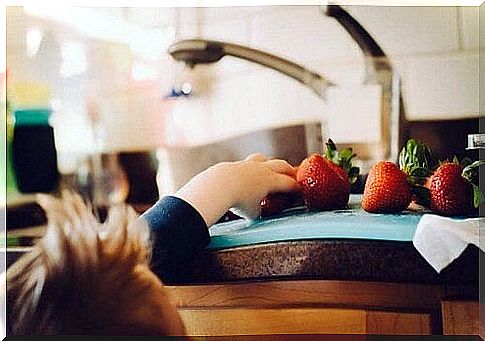
Overprotected Children: Let them face small challenges
The worst drawback of narcissism is that it prevents our children from maturing. Let them face small daily challenges, such as learning how to make a bed in no time or how to tie their shoes properly.
With these little challenges, the child will learn to do things on their own. You could also send him to help you in the kitchen, letting him mix the ingredients and letting him take small steps that he likes. In this way, as a result, he may also get used to eating healthily.

